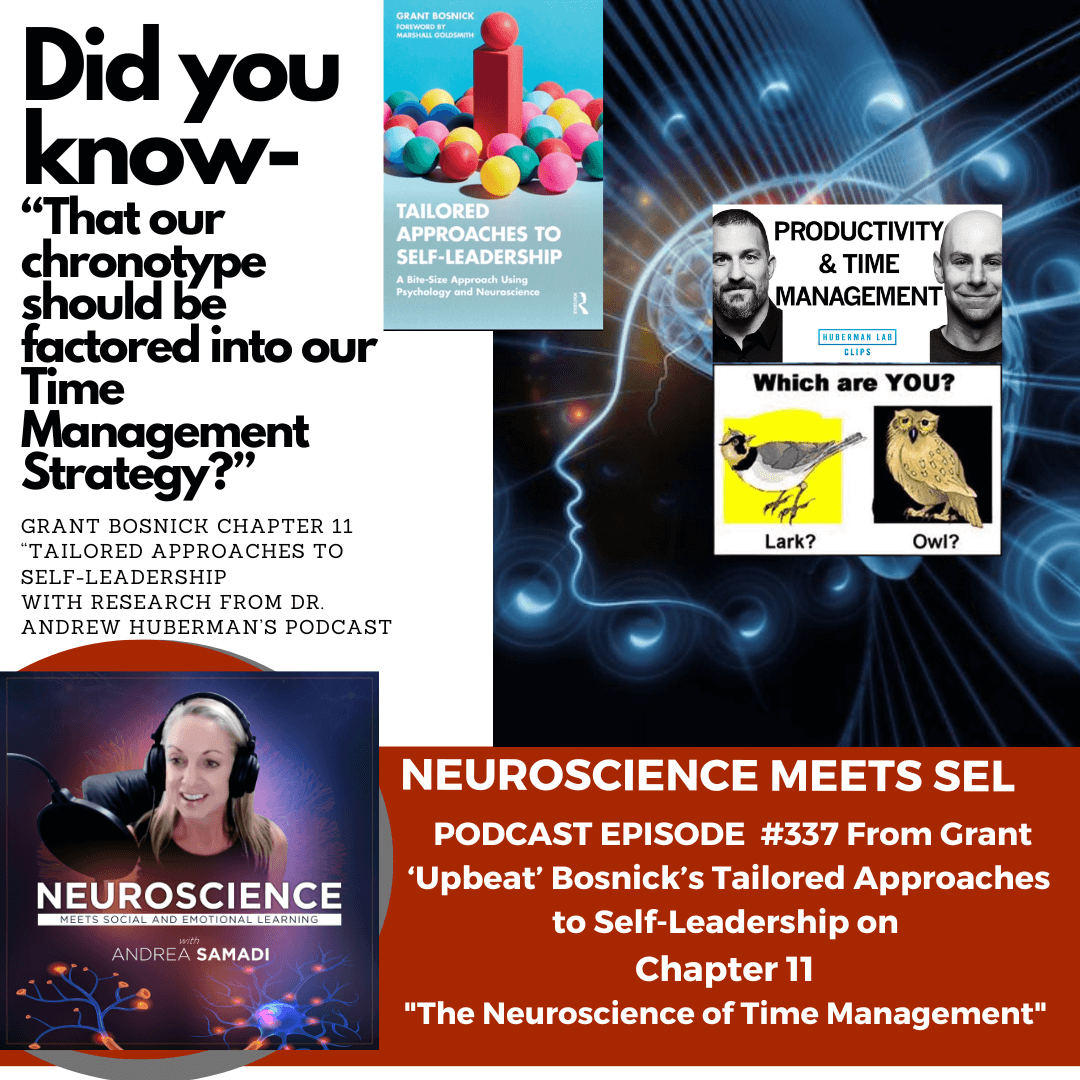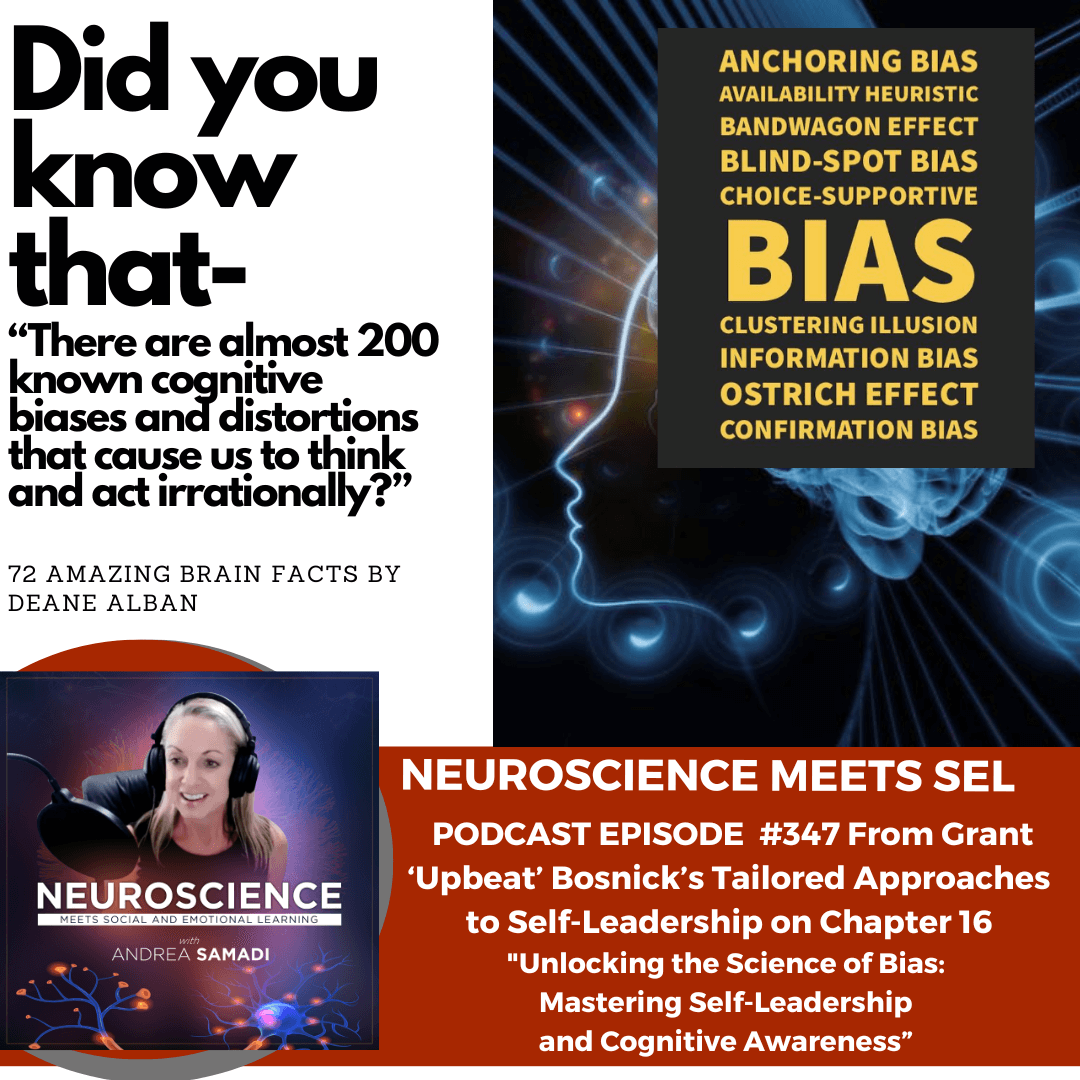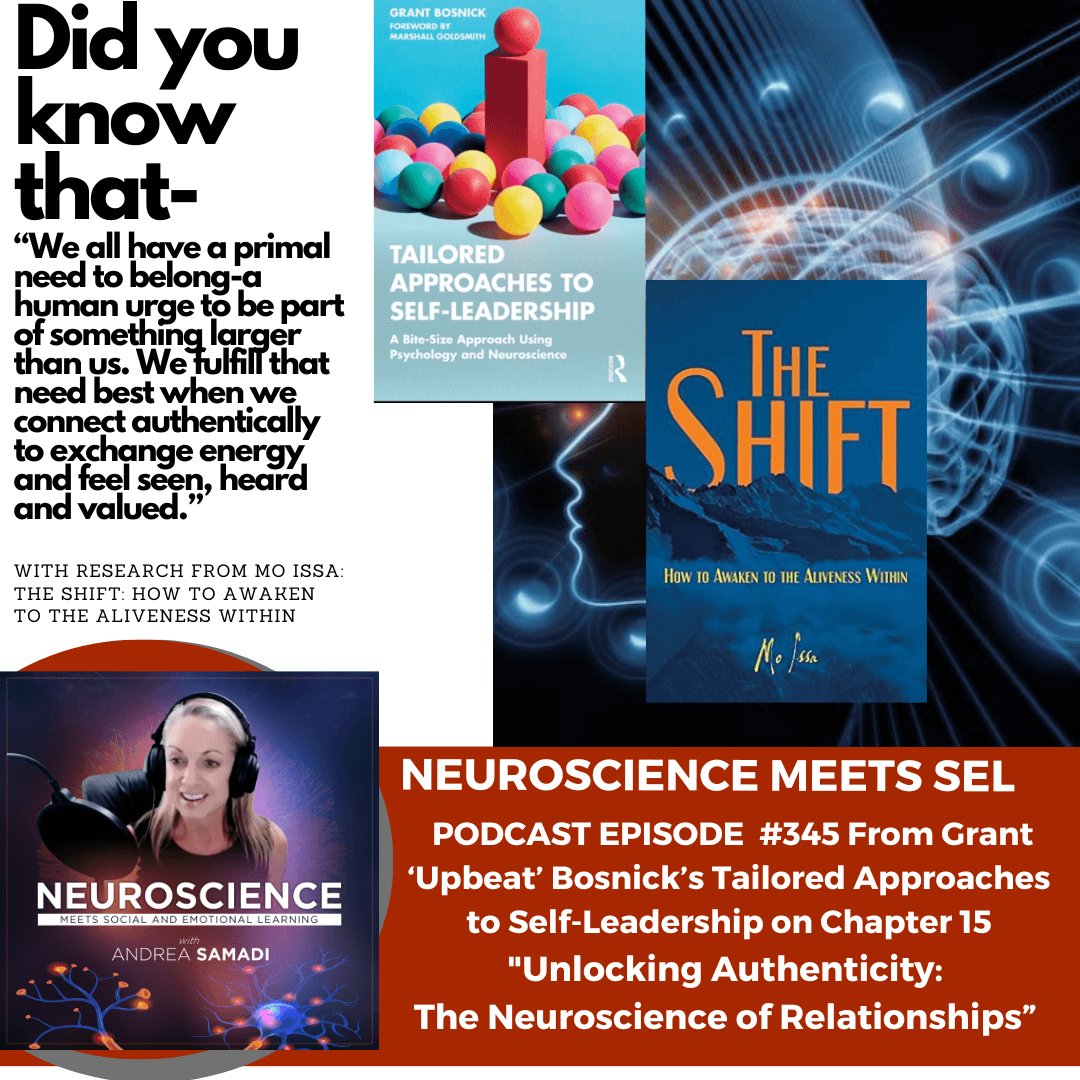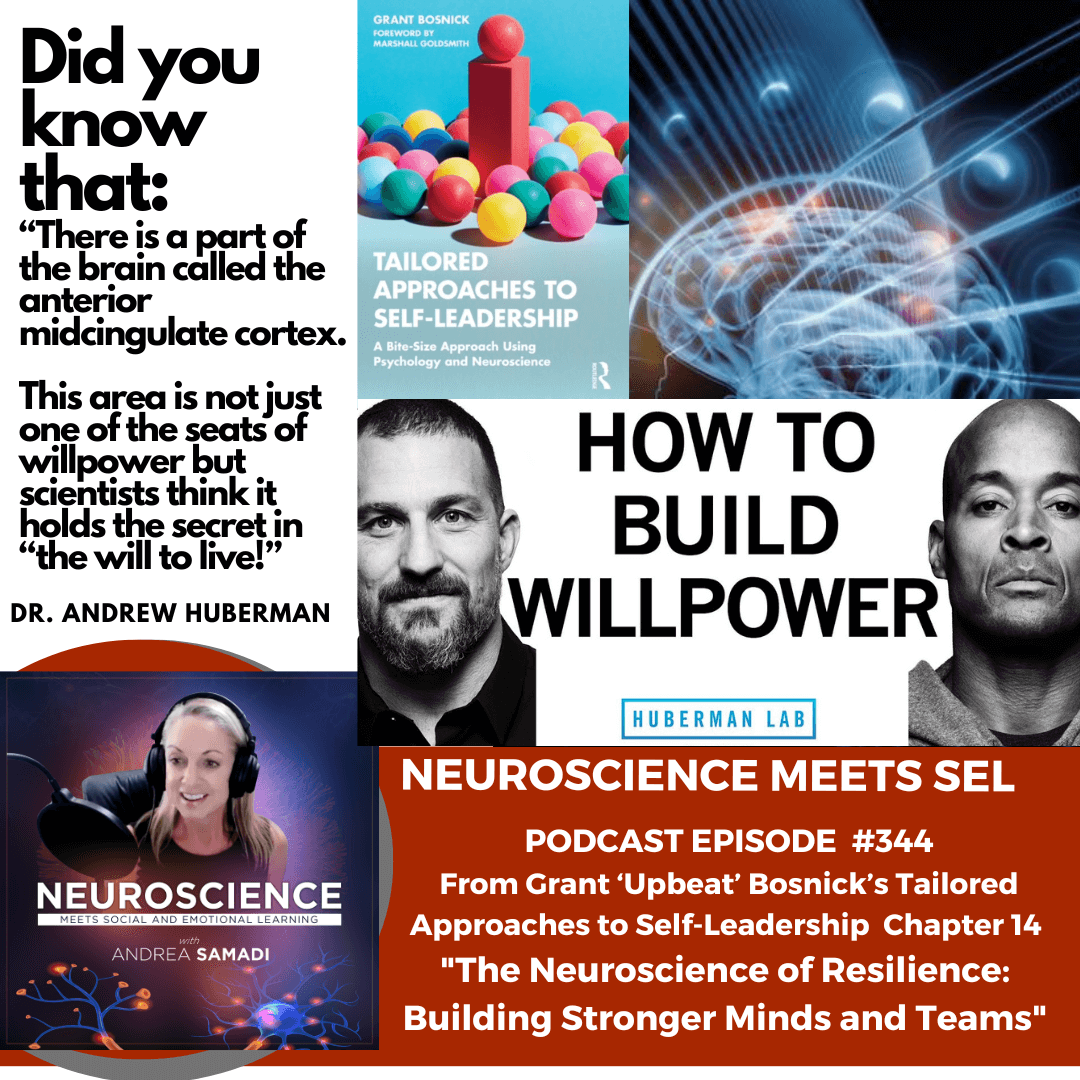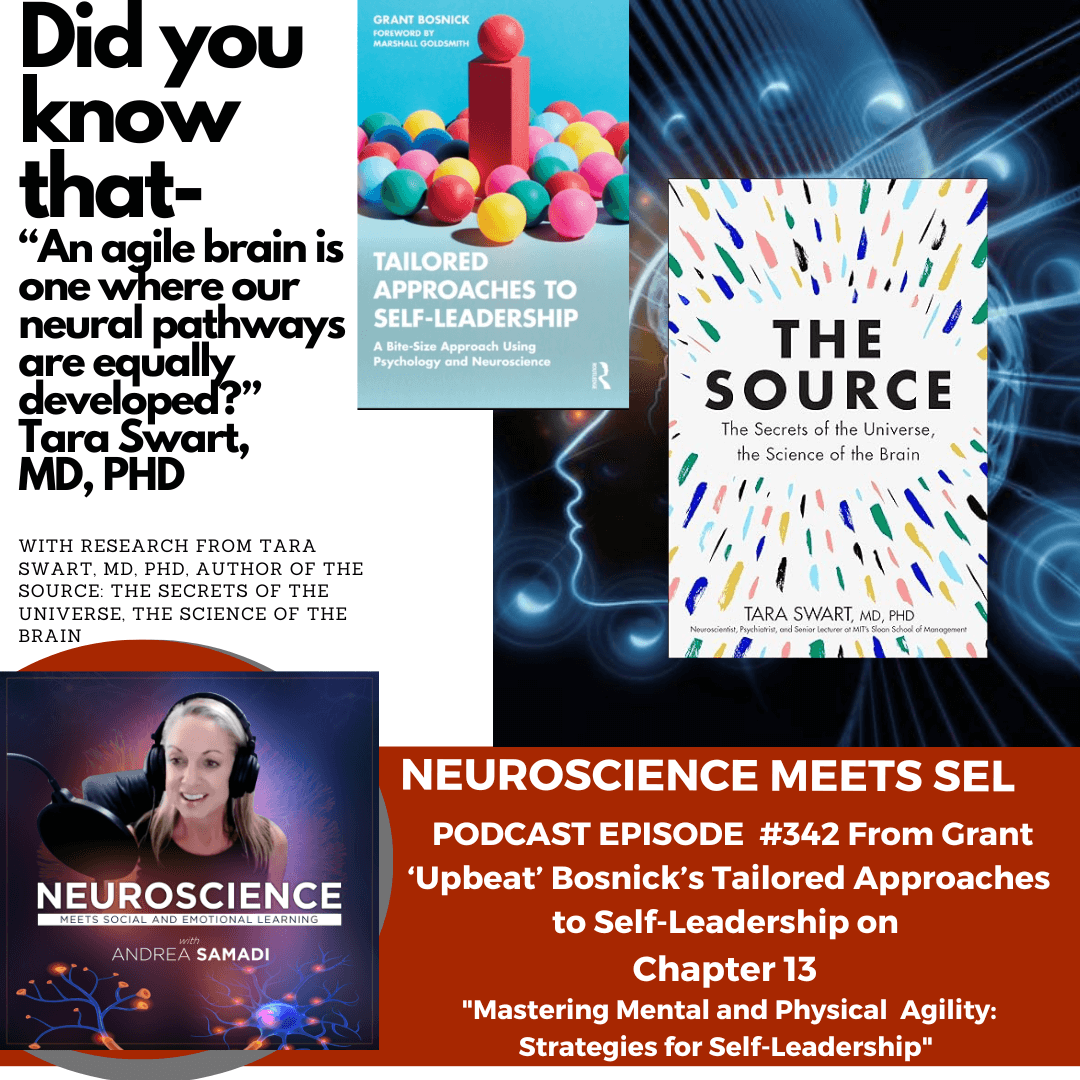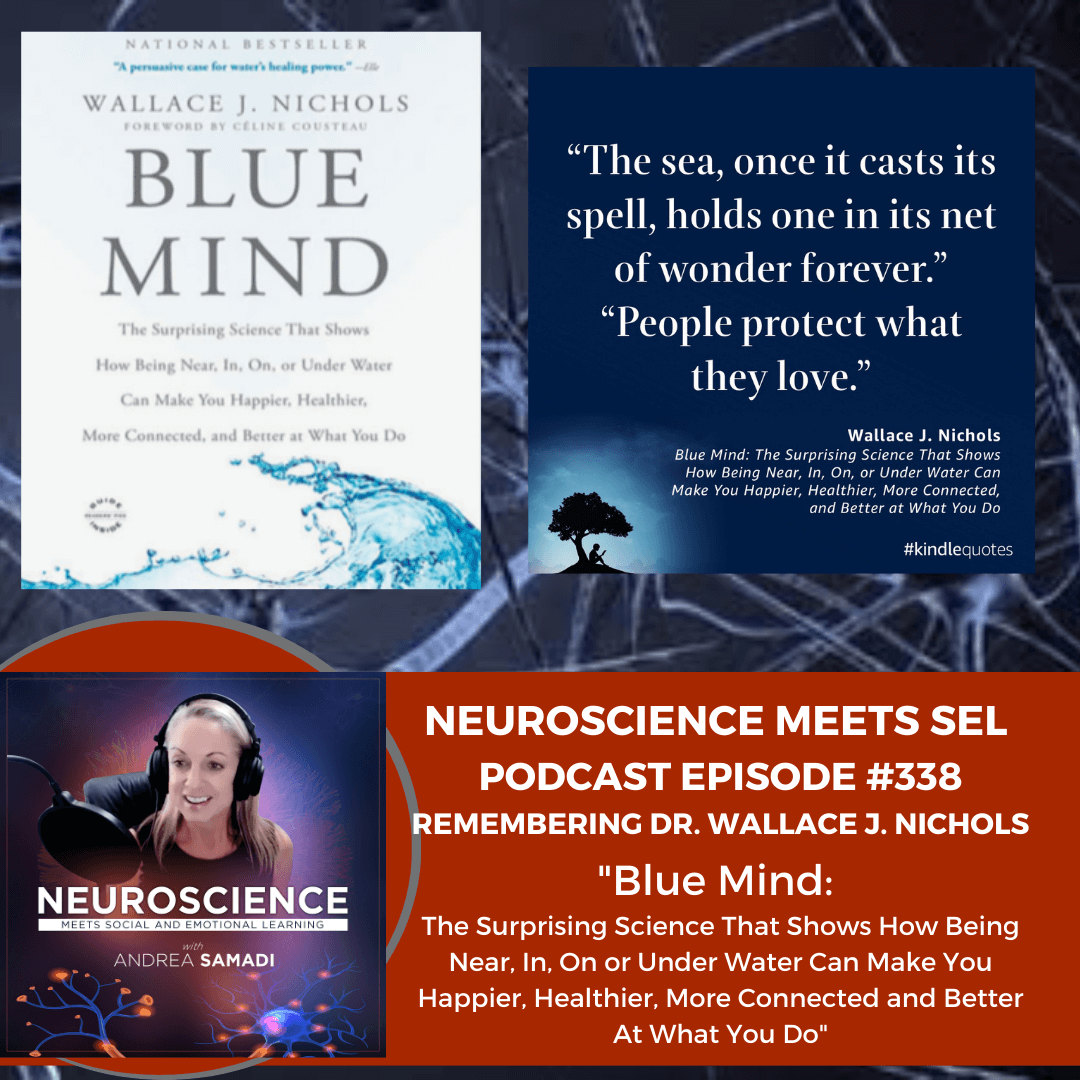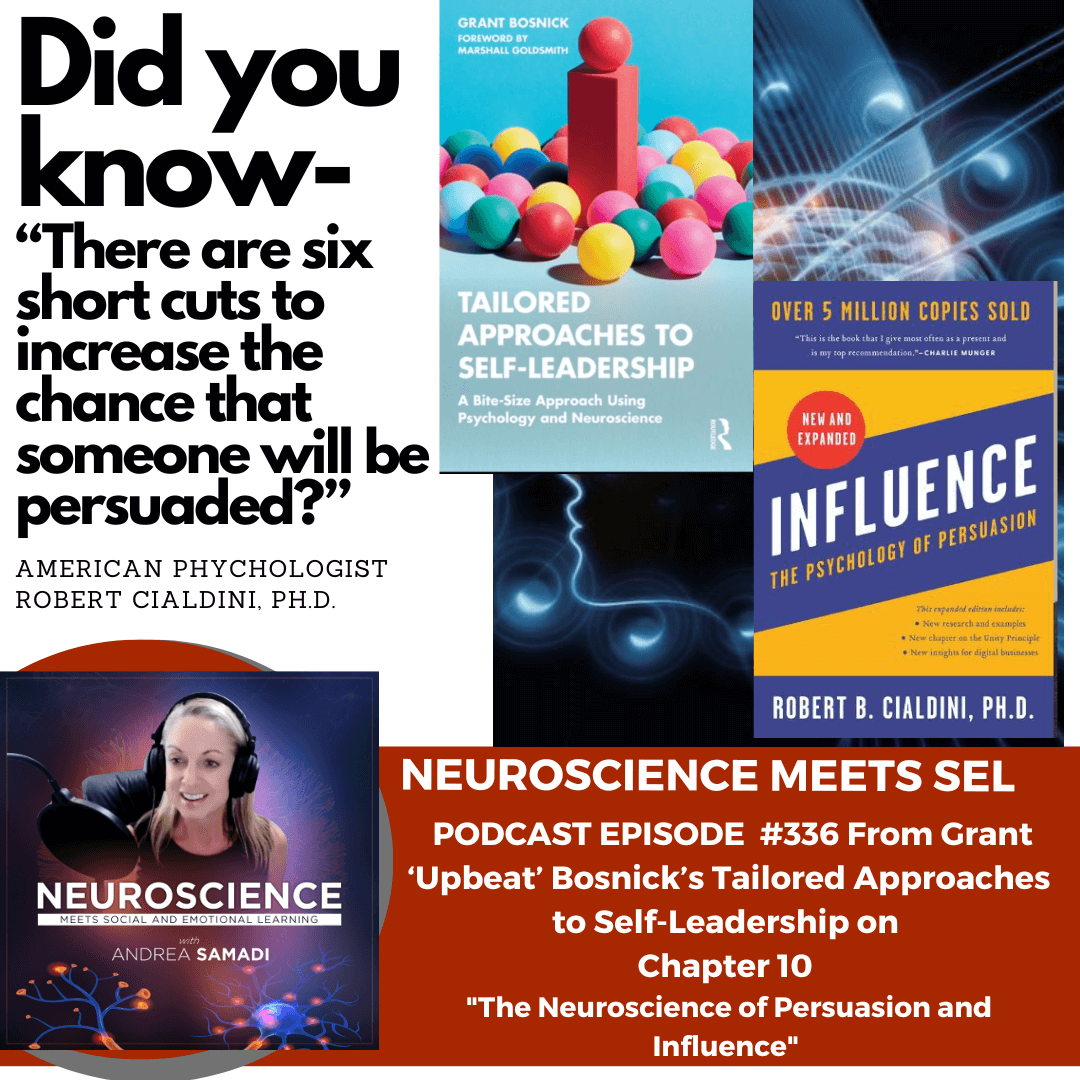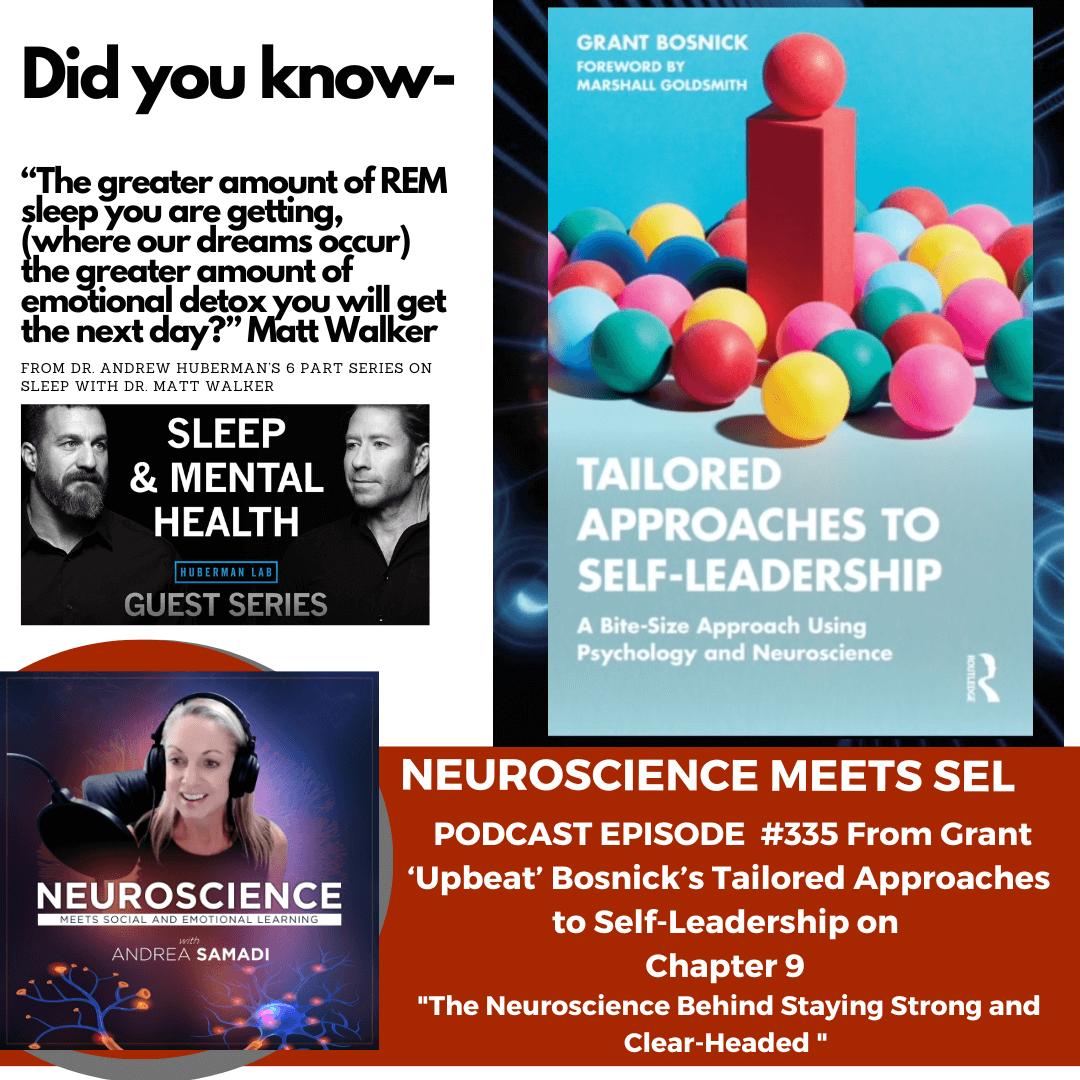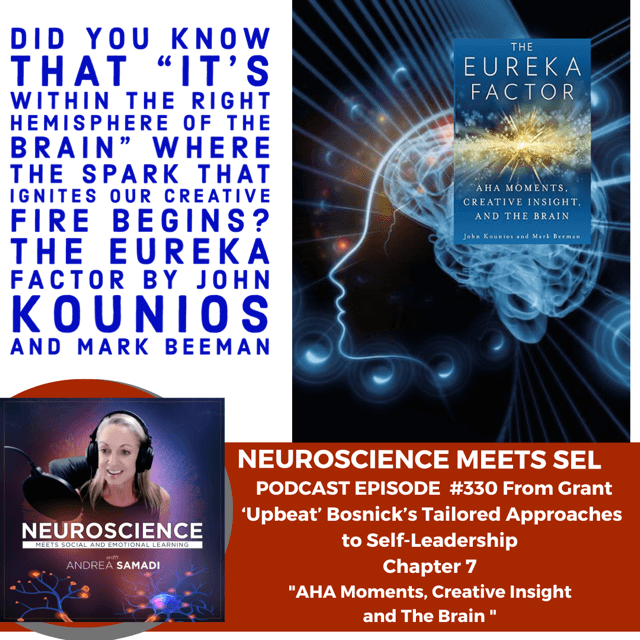Time: Insights from Grant 'Upbeat' Bosnick: The Neuroscience Behind Effective Time Management Chapter 11
Description
Welcome back to Season 12 of the Neuroscience Meets Social and Emotional Learning podcast, where we connect science-based evidence with practical applications for improved well-being, achievement, and productivity. I'm Andrea Samadi, your host, and today we're diving into episode number 337, continuing our 18-week self-leadership series based on Grant Bosnick's tailored approaches to self-leadership.
In this episode, we explore chapter 11 of Grant's book, focusing on the neuroscience of time management. Discover how understanding your chronotypes and managing your energy can lead to better productivity and creativity. We'll share insights from Kent Healy's perspective on time management and highlight practical strategies from renowned experts like Stephen Covey and Brendon Burchard.
Learn how to prioritize tasks, avoid common time traps, and use your peak energy periods for deep work. Whether you're an early bird or a night owl, this episode provides valuable tips to make the most out of your 84,600 seconds each day.
Join us as we uncover the science behind effective time management and how it can transform your personal and professional life. Don't miss out on these powerful insights to help you reach greater heights in 2024.
Welcome back to SEASON 12 of The Neuroscience Meets Social and Emotional Learning Podcast, where we connect the science-based evidence behind social and emotional learning and emotional intelligence training for improved well-being, achievement, productivity and results—using what I saw as the missing link (since we weren’t taught this when we were growing up in school), the application of practical neuroscience. I’m Andrea Samadi, an author, and an educator with a passion for learning and launched this podcast 6 years ago with the goal of bringing ALL the leading experts together (in one place) to help us to APPLY this research in our daily lives.
On today's episode #337 we continue with our 18-Week Self-Leadership Series based on Grant Bosnick’s “Tailored Approaches to Self-Leadership: A Bite Size Approach Using Psychology and Neuroscience” that we first dove into with our interview on EP #321[i] the end of January. The goal was that each week, we focused on learning something new, (from Grant’s book) that builds off the prior week, to help take us to greater heights in 2024.
On today's EPISODE #337 we will cover:
✔ We'll share insights from Kent Healy's perspective on time management and highlight practical strategies from renowned experts like Stephen Covey and Brendon Burchard.
✔ Discover how understanding your chronotype and managing your energy can lead to better productivity and creativity.
✔ Learn how to prioritize tasks, avoid common time traps, and use your peak energy periods for deep work.
✔ How will YOU manage your time, with brain science in mind?
For Today, EPISODE #337, we are moving on to Chapter 11, covering “The Neuroscience of Time Management” which came out as a low, or RED priority for me at 8%, and again, not because this topic isn’t important for me, but I’ve already put strategies for time management into place, so this is not an area I need to focus on this year. It’s interesting to see how each of these lessons play out in our daily life, putting theory into practice. This morning I had to chance to see why this topic showed up as low importance for me to work on this year. I had slotted on my calendar to write this episode, (a Saturday), I started my day at 4am (with early meditation, then some time in the sauna) before hitting the hiking trails for what I call a long 7-mile hike, that I do only if I am fully rested, to guarantee a good day of focused writing. While driving back from this this hike, I had a call from a good friend I had not seen in quite a few years, who wanted to see if we could meet for coffee. I know the time required to write, record and edit this episode, so I told her this was my priority for the weekend, and that I could let her know if I finish earlier. Otherwise, we could plan to meet another time, even though I know it would be great to see this friend. This weekend was not the right time.
So before we even start looking into the Neuroscience Behind Time Management that this topic is important to me. Vitally important. Not just for managing my own time, but also valuing the time of others as well.
If you’ve taken the leadership self-assessment[ii], look to see if Time Management is of a low, medium or high priority for you to focus on this year.
We covered this topic on the podcast in our early days, with someone I came across about 15 years ago, before publishing my first book, on success strategies for teenagers. I wanted to find other success books were out there, and I came across Kent Healy’s Success Principles for Teens[iii] that he co-authored with Jack Canfield.
At that time, I was working with success principals (character and leadership) with students in the classroom and reached out to Kent for some thoughts on something to help inspire our next generation to think bigger, (like I knew he did) and reach for greater heights. Kent created a video for me that we used with students and I featured this video on EP 33[iv] of our podcast that was called “Time Management, the Greatest Asset We Have.” Kent gives a perspective to the amount of time we have, in a way that 15 years later, I’ve still not forgotten his words in this video recording. You can watch Kent’s explanation of “time management”[v] here, with the visuals that he provided, reminding us that “we all have the same amount of time” and he even breaks it down and tells us how many seconds we have every day (84,600 seconds to be exact). While ALL the experts agree that we can’t create more time, or change this number, some will say we can use our time to generate more of something else (like energy) but Kent’s message was about using this time (these 84,600 seconds we have each day wisely) and focus on what we can control, and that’s our personal growth.
He gives an example of adding just 15 extra minutes a day towards learning something new, and that adds up to 3.8 full days a year, and asks us to think of what value we put on 15 minutes of time.
After thinking about Kent Healy’s message on time, my mind went back to when I heard over and over again, the words from Earl Nightingale, through Bob Proctor, who often would quote Earl’s thoughts on time management. Proctor would quote Earl and say “Time cannot be managed! Nobody masters time management. I merely manage activity.”[vi] Which led me to think about the blocks of time (my activity) that I have on my calendar, and the early morning blocks are non-negotiable. Also, my work hours (whether it’s working on the podcast on the weekend), or my full time work (weekdays) my calendar is blocked off, and the time here in non-negotiable.
Kent Healy’s message about paying attention to what I do with even 15 minutes of time, mixed with Earl Nightingale’s message of managing activities (or blocking out what’s important for us to accomplish each day) is engrained so deeply into my daily habits that I have a deep respect for my time, and other people’s.
Think About These Questions:
Do you value your time?
Do you value other people’s time?
Do you think 15 minutes of time really matters?
Let’s see what Grant Bosnick thinks about Time Management in Chapter 11 of his book. He opens up the chapter by asking us to define what it means to “manage time” and says “it’s more about managing our energy through time.” (Ch 11, Grant Bosnick, Tailored Approaches to Self-Leadership).
HOW GRANT BOSNICK MANAGES HIS TIME:
Bosnick does mention Stephen Covey’s The Seven Habits of Highly Effective People that we looked at on EP #207 with our interview with Greg Link, who took The 7 Habits Book to incredible heights, saying that Covey’s work influenced his approach to thinking about time. Bosnick created something he calls his 7 Roles Planning Sheet where breaks down his task list into several different roles we might have in our life (like competent salesperson, collaborative team member, parent, etc). I like how his planner breaks down the different roles we all have, so we can separate our work roles and personal life roles, with the next steps (or goals) to move each of these roles forward.
IMAGE CREDIT: Grant Bosnick Tailored Approaches to Self-Leadership Chapter 11
I’ve seen the author of the book, High Performance Habits, Brendon Burchard[vii], create something that also helps break down our long task lists, using different projects with his 1- Page Productivity Planner that I’ve put a link to in the show notes.
I’ve personally used this planner for years to keep track of the steps in certain projects, keeping them all separate. Like writing a new book, or building a new website, with the steps needed in order to move each project forward.
IMAGE CREDIT: Brendon Burchard’s 1 Page Productivity Planner[viii]
The part I liked the most on this planner, was the PEOPLE section, where you keep track of important people you reached out to (helping you move each project forward) to those who you were waiting to hear back from. EVERY important person I have ever met with (over the years) was written on this list, until I crossed them off and had finished what I needed to accomplish with them.
Bosnick also covered a concept that Stephen Covey is known for cre

